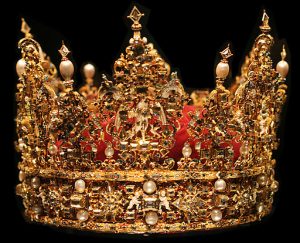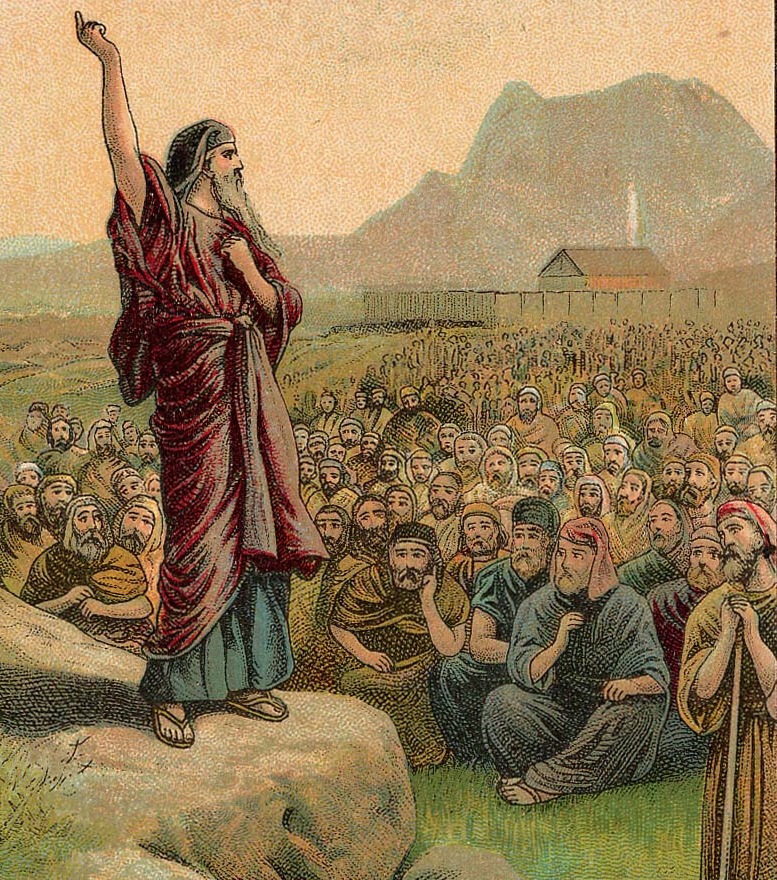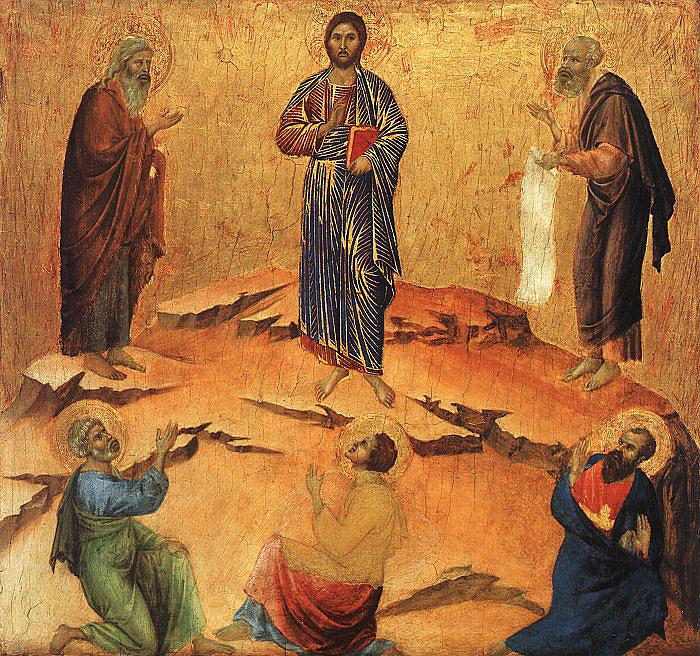In John 6 we find the story of the feeding of the five thousand, which comes to an interesting conclusion:
Therefore when the people saw the sign which He had performed, they said, “This is truly the Prophet who is to come into the world.” So Jesus, perceiving that they were intending to come and take Him by force to make Him king, withdrew again to the mountain by Himself alone. (John 6:11-15)
 Why did the people conclude that Jesus was “the prophet” from this miracle, and why did they want to make him king? In order to understand the story, we need to understand their messianic expectations.
Why did the people conclude that Jesus was “the prophet” from this miracle, and why did they want to make him king? In order to understand the story, we need to understand their messianic expectations.
The word “messiah” means “anointed,” and is most often used in terms of a coming king. Prophets and priests were anointed too, and prophecies also describe the messiah in terms of being a great prophet and priest as well.
Their thinking that Jesus is “the Prophet who is to come into the world” is most likely coming from Deuteronomy 18. In this passage, Moses says to the people:
The LORD your God will raise up for you a prophet like me from among your own brothers. You must listen to him… The LORD said to me: … I will raise up for them a prophet like you from among their brothers; I will put my words in his mouth, and he will tell them everything I command him. If anyone does not listen to my words that the prophet speaks in my name, I myself will call him to account. (Deut 18:15, 18-19)
The Jewish people regarded Moses as the greatest prophet of all time, who was unsurpassed by anyone else in their history. God had said that with all other prophets he spoke to them in dreams and visions, but with Moses, God spoke face to face (Numbers 12:6-8). Moses had also done great miracles to free them from Egypt and led them out of bondage.
He had mediated their covenant, given them their scriptures, and they considered him their greatest leader of all time. To say that a prophet would come even greater than Moses was saying a powerful thing indeed! He would speak for God in an unparalleled way, and free them from their oppressors.
 So, when the people saw Jesus had multiplied the loaves and fishes, it seemed to them as if he was duplicating the miracle of the miraculous provision of food in the desert. He was, in essence, giving them manna from heaven. They are imagining that Jesus would, like Moses, lead them into an era of freedom from their enemies and miraculous provision of their needs. They are obviously wanting Jesus to act as a “prophet like Moses” when they ask him to repeat the miracle:
So, when the people saw Jesus had multiplied the loaves and fishes, it seemed to them as if he was duplicating the miracle of the miraculous provision of food in the desert. He was, in essence, giving them manna from heaven. They are imagining that Jesus would, like Moses, lead them into an era of freedom from their enemies and miraculous provision of their needs. They are obviously wanting Jesus to act as a “prophet like Moses” when they ask him to repeat the miracle:
So they said to Him, “What then do You do for a sign, so that we may see, and believe You? What work do You perform? “Our fathers ate the manna in the wilderness; as it is written, ‘He gave them bread out of heaven to eat,'” Jesus then said to them, “Truly, truly, I say to you, it is not Moses who has given you the bread out of heaven, but it is My Father who gives you the true bread out of heaven. “For the bread of God is that which comes down out of heaven, and gives life to the world.” Then they said to Him, “Lord, always give us this bread.” (John 6:31-34)
Jesus’ final response to them, however, is that they are looking for the wrong kind of “bread from heaven.” They are looking for a Messiah who will miraculously give them food to eat as they imagined Moses did. Jesus points out that Moses didn’t supply them bread from heaven, it actually came from God. When God gave them bread before, it sustained their lives for 40 years. Now, God was giving them a bread from heaven that could give them eternal life: himself as their sacrifice for sin!
That is why Jesus says,
Truly, truly, I say to you, he who believes has eternal life. I am the bread of life. Your fathers ate the manna in the wilderness, and they died. This is the bread which comes down out of heaven, so that one may eat of it and not die. I am the living bread that came down out of heaven; if anyone eats of this bread, he will live forever; and the bread also which I will give for the life of the world is My flesh. (John 6:47-51)
~~~~
Photos: Ikiwaner [CC BY-SA 3.0], Rodolfo Marques on Unsplash



